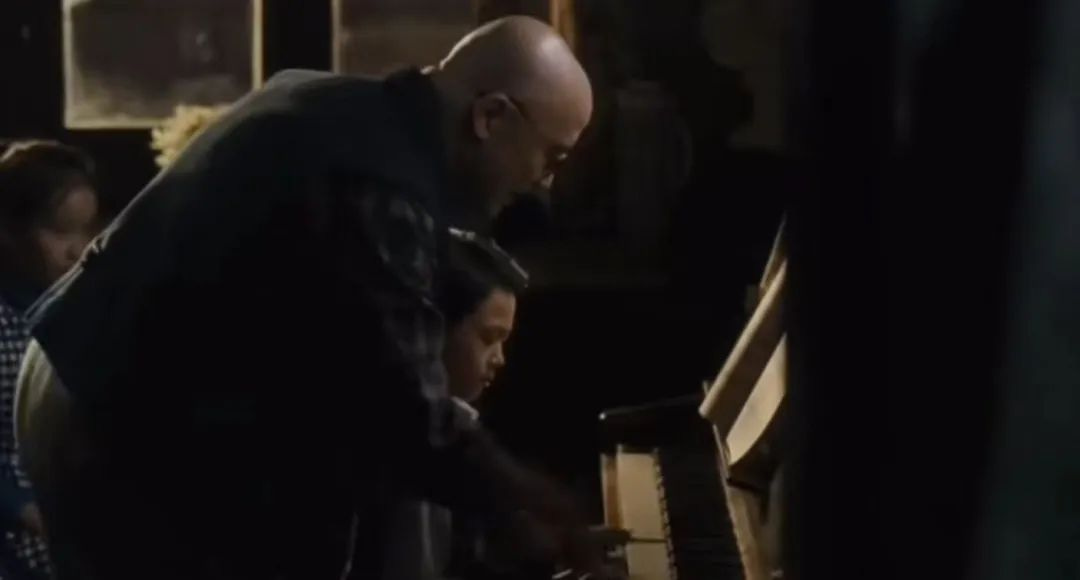Piano sales fall dramatically
Economic downturn and policy changes cause steep decline in students learning (and buying) the piano
Welcome to this week’s RealTime Mandarin!
It’s a free resource helping you learn contemporary Chinese in context, maintain and improve your Mandarin skills, and stay on top of the latest language trends in China.
Subscribe now to get the next newsletter in your inbox on Saturday.
Piano sales in China are falling.
Since the middle of January “#piano sales dropped off a cliff” (钢琴销量断崖式下滑) has been trending on Weibo and other social media platforms.
One blogger noted:
"The owner of a piano factory said sales have completely collapsed.
Half of China’s piano factories closed down last year. People who bought their pianos for 50,000 to 60,000 yuan are not able to resell them even for 5,000 yuan."
“一个钢琴厂的老板说钢琴彻底崩盘了,去年一半钢琴厂倒闭了。以前5、6万买的钢琴,今年5000块出手都没人要。”
The impact is being felt across the industry.
China’s two leading piano manufacturers, which once accounted for half of the domestic market, are struggling.
Pearl River Piano (珠江钢琴), China’s biggest piano maker, saw its revenues fall by 31.47%, and net profit plummet by 93.54% last year; while the second largest, Hailun Piano (海伦钢琴), saw its revenue in the first three quarters of 2023 fall by 22%, with net profit down by 25%.
The piano used to be the most sought-after musical instrument for China’s aspiring middle-class families.
Wealthy Chinese parents were willing to pay large sums of money to buy the instrument and fund expensive lessons for their kids.
It was a status symbol.
Taking up the piano was also helpful for school and university applications:
Since 2008, with the implementation of the art talent bonus points policy for national middle school entrance exams, there was a sudden surge in the popularity of learning the piano.
This not only gave rise to many piano brands, but also created a multi-billion-dollar market for piano lessons and graded exams.
回到2008年艺术特长生中考加分政策施行,全国一夜之间掀起了学钢琴热,让不少钢琴品牌趁势崛起,也催生出钢琴培训、钢琴考级的千亿市场。[1]
But that policy was cancelled in 2018.
Student numbers have been falling since then.
More recently, China’s slowing economic growth has put further pressure on millions of families across the country.
Looking for ways to reduce outgoings, parents see their kids learning the piano as high cost, with little chance of becoming a viable career.
In the past couple of years, as economic growth has slowed, parents are finding it increasingly difficult to boost family income, forcing them to focus on cutting unnecessary expenses.
Hobbies such as playing the piano, which don't contribute directly to putting food on the table, are expensive, and undoubtedly the first to be cut from the budget.
近两年来,随着经济增速放缓,宝爸宝妈发现增加家庭收入“开源”已经越发艰难,自然只能在“节流”上做文章,清理不必要的开支了。而钢琴这种不能当饭吃,培养起来又非常昂贵的技能,毫无疑问是首先被清理的对象。[1]
So, with less people learning to play the piano, sales of the instrument have continued to fall.
It’s precisely because there are fewer people learning piano that no one is buying them!
Compared with the previous craze, parents are indeed less enthusiastic about encouraging their children to learn the piano. As a result, many teachers have much fewer students compared to before.
正是因为学钢琴的人少了,钢琴才卖不动的!比起以前的热潮,现在家长对让孩子学琴确实没那么热衷了,也使得钢琴老师由门庭若市变为门可罗雀。
So is the piano now in permanent decline in China?
That's what we explore this week!
🎧What you’re missing in the member podcast 🎧
This week’s member podcast includes nearly 30 minutes of native Chinese audio.
With loads of extra phrases and insights into the language used to discuss this news story.
Sign up and access the audio and transcript now!
Favourite Five
1. 鸡娃 jī wá
chicken baby, parents who push their children too hard academically
作为一名身处北京的家长,我这两年肉眼可见的是,身边想要鸡娃的家长越来越少了 - As a parent in Beijing, what I've observed over the past two years is that the number of "chicken baby" parents pushing their children too hard academically is clearly falling. [3]
2. 惨淡 cǎn dàn
bleak, dismal
上游工厂的消息,也印证了销售端的惨淡 - The news from the upstream factories also confirmed the bleakness on the sales end. [1]
Note: A word that was in all articles I read about this story.
Related:
窘境 jiǒng jìng - predicament, difficult situation
崩盘 bēng pán - collapse, market crash
3. 特长生 tè cháng shēng
students admitted for their special talents
要逐步压缩特长生招生规模,直至2020年前取消 - It is planned to gradually reduce the number of students admitted for their special talents, and ultimately cancel this admission category before 2020. [1]
Note: Students who enjoy favourable admission policies, getting bonus points in admission exams, in exchange for their "service" to the school once admitted, such as taking part in competitions.
4. 门可罗雀 mén kě luó què
deserted
使得钢琴老师由门庭若市变为门可罗雀 - As a result, many piano teachers have much fewer students compared to before.
Related: The opposite idiom is…
门庭若市 méntíng ruòshì - the entrance of the home is as busy as a market
5. 断崖式下滑 duàn yá shì xià huá
precipitous decline
就在1月16日上午,#钢琴销量断崖式下滑#,还一度登上微博热搜 - On the morning of January 16, the hashtag #piano sales dropped off a cliff # was trending on Weibo. [1]
Consuming the Conversation
Useful words
6. 标配 biāo pèi
standard configuration, typical choice
以往中产阶级鸡娃“标配”钢琴,现在落得个无人问津的境地 - In the past, it was typical for middle-class parents who push their children hard academically to let them learn the piano, but now it's something that no one takes interest in. [1]
7. 寒冬 hán dōng
harsh winter, economic downturn
但钢琴全行业的寒冬已不可避免地到来 - But the harsh winter of the entire piano industry is now unavoidable. [4]
Related:
寒意 hán yì - chill, coldness
8. 鸡肋 jī lèi
something of little value, useless
家长又费钱、又费神,亲子之间的关系还受影响,钢琴彻底成了鸡肋 - Parents spend a lot of money and energy, also risking the worsening relationship between them and their children, so the piano has become completely useless. [2]
9. 软肋 ruǎn lèi
pressure point, vulnerability
在现实面前,孩子更多是一代人的软肋 - In reality, children are more like the pressure point of their parents. [3]
10. 氪金 kè jīn
to spend money on online games, especially excessively
钢琴作为一项投入门槛极高的兴趣,意味着源源不断的“氪金” - The high entry threshold for piano as a hobby implies a continuous need to "spend a considerable amount of money ". [3]
11. 滞销 zhì xiāo
unsalable, slow-moving (of goods)
学琴的人锐减和钢琴滞销之间形成了恶性循环 - The sharp decrease in people learning the piano and the slow-moving sales of pianos have formed a vicious cycle. [4]
萎靡 wěi mí - languishing, listless
Three-character phrases
12. 不景气 bù jǐng qì
economic downturn
行业不景气,绝不是钢琴卖不动那么简单 - What's behind the industry's economic downturn is definitely not as simple as pianos not selling. [1]
13. 攀比心 pān bǐ xīn
the urge to compare with others (and want to be better)
很多时候练琴不是出于兴趣,而是家长的攀比心 - Many times, learning the piano is not driven by interest but by parents' desire for their children to be better than others! [1]
14. 一股脑 yì gǔ nǎo
all at once
有的进口品牌95新钢琴直接半价转让,送琴凳送节拍器和书,恨不得一股脑全部清仓甩卖 - Some foreign brands even sell their like-new second-hand pianos at half price, plus free piano stool, metronome, and scores, as if they can't wait to sell everything at once and clear out the inventory. [4]
Idioms
15. 灭顶之灾 miè dǐng zhī zāi
catastrophe, an overwhelming disaster
连锁琴行可能就会面临资金链断裂的灭顶之灾,进而影响终端消费者 - Franchised piano schools might face a catastrophic liquidity crisis, which can subsequently affect end customers. [1]
16. 惊天动地 jīng tiān dòng dì
earth-shattering, extraordinary
这当中到底经历了什么惊天动地的故事呢 - What extraordinary story has unfolded in the midst of all this? [1]
17. 鸡飞狗跳 jī fēi gǒu tiào
chaos
别人家孩子都学了钢琴,自家当然也不能落后,结果“不练琴母慈子孝,一练琴鸡飞狗跳” - Seeing that other children are learning the piano, parents fear that their own child might fall behind if not doing the same. The result is that "there's harmony when not practising and there's absolute chaos as soon as a practice session starts".[1]
18. 罪魁祸首 zuì kuí huò shǒu
main culprit
钢琴,成为严重影响家庭关系的“罪魁祸首” - The piano has become the main culprit of worsening family relationships. [1]
19. 雨后春笋 yǔ hòu chūn sǔn
spring up like mushrooms after rain, to appear in large numbers
琴行像雨后春笋一样,宁峻嶙小区里时不时出现新开张的琴行的宣传单 - Music schools are springing up like mushrooms after rain, with promotional flyers for new openings appearing from time to time in the compound that Ning Junlin lives in. [2]
20. 起早贪黑 qǐ zǎo tān hēi
work or study day and night; extremely hard-working
甚至不惜冒着得罪邻居的风险,也要让孩子起早贪黑练琴 - Some parents even risk complaints from their neighbors, as they make their children practice the piano early in the morning and late into the night. [1]
Related:
披星戴月 pī xīng dài yuè - leave for work before the sun rises and return home when the moon is in the sky
Phrases
21. 投入产出 tóu rù chǎn chū
input-output, cost-benefit
说到底,这是一个投入产出的问题 - Ultimately, this is a question of input-output, a matter of cost and benefit. [4]
22. 硬着头皮 yìng zhe tóu pí
persevere despite difficulties, grit one's teeth
硬着头皮继续,换来的只有更多的痛苦 - If they grit their teeth and keep pushing for it, it would only bring more pain. [2]
Related:
咬着牙坚持 yǎo zhe yá jiān chí - grit one's teeth and persevere
23. 冰冻三尺,非一日之寒 bīng dòng sān chǐ fēi yí rì zhī hán
It takes more than one cold day for the river to freeze three feet deep, a problem does not occur overnight
而且“冰冻三尺,非一日之寒”,钢琴能有今天,其实早在几年前就埋下了伏笔 - Furthermore, this problem did not occur overnight. What we seen in the piano industry now is actually the result of things that happened years ago. [1]
Become a member of RealTime Mandarin+
The RealTime Mandarin+ membership is a multimedia resource helping you learn contemporary Chinese in context
If you enjoyed reading the free newsletter, you’ll LOVE our paid membership: RealTime Mandarin+.
By joining Real-Time-Mandarin+, you unlock loads of extra resources to help you dramatically improve your Chinese language skills. Every week you get access to:
🔈Podcast - 30 min podcast every Saturday with 80% native Mandarin (including transcript)
📚 Resources and integrations - Pleco, Skritter, Hack Chinese, mylingua (new!), and PDF printouts
👩🎓 Intermediate newsfeed - One ‘real’ Chinese language news podcast and article published every Sunday, in a lesson format, pitched at an intermediate level
💬 Community - Slack community, Substack Chat, online meet-ups, in-person gatherings
🤿 Quarterly Deep Dives - One hour webinars focussing on one key challenge of intermediate learners delivered around the end of every quarter.
When you join, you’ll also have an optional 1-1 onboarding and coaching call to help orientate you.
It’s the best way to get motivated, inspired, and kick-start your Mandarin learning habit.
You can access all of these resources for less than the cost of one pint per week in a London pub.
It’s a no brainer (and much better for you)!
So, if you’ve been on the fence for a while, now is the time to confront it, invest in yourself, and commit!
Happy learning!
Andrew





